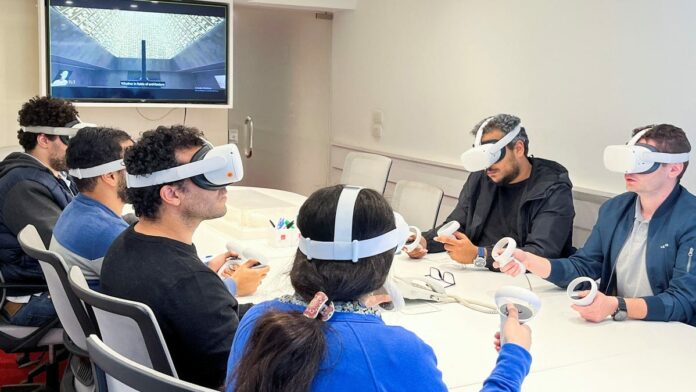Mark Zuckerberg is on a mission to make the metaverse happen. In the last three months ending Dec. 31, Meta’s Reality Labs division hit $1 billion for the first time — while also recording $4.65 billion in losses. To be sure, the VR headsets still make up a slither of Meta’s overall revenue, which continues to be driven by the company’s ad business.
“It was a good quarter,” Mark Zuckerberg said on a conference call with analysts and investors. “We’ve made a lot of progress on our vision for advancing AI and the metaverse.” Meta’s stock is up 1.19% in after-hours trading.
The company expects Reality Lab’s operating losses to increase “meaningfully” year-over-year with investments in product development in augmented reality and virtual reality. In the fourth quarter, R&D investments increased by 8%, driven by headcount-related costs. The Quest app, which allows VR headset owners to buy games, was the most-downloaded app in Apple’s App Store on Christmas Day.
In the fourth quarter, Meta posted revenue of $40.1 billion, up 25% from the same period last year; earnings beat Wall Street expectations. The tech giant has also announced its first-ever dividend payment, priced at 50 cents per share.
How is Meta using generative AI?
While Microsoft was focused on the customers using and buying its cloud service and AI products, Meta pitched investors on how generative AI will be incorporated into its different products.
Meta said it will be launching multi-model AI features this year. Zuckerberg told investors that he thinks consumers will want new categories of devices that use AI today without having to take out their phone. He added that the company is buying 150,000 H100 GPUs by the end of this year, which suggests more advanced AI products are in the works.
Every creator will have an AI their community can engage with, and every business will have an AI that their customers can interact with to buy goods, and every developer will have open-source models to build with, Zuckerberg boasted.
And of course, Meta has entered the race with OpenAI to work on artificial general intelligence (or AGI), the point when AI models can reason at the level of human beings. The company is also positioning its AI model, Llama, as open-source to compete with OpenAI’s closed-source GPT model.
Meta wants a leaner year
Last year, Meta embarked on its “year of efficiency,” cutting more than 10,000 employees and realigning its business around AI and the metaverse.
On the conference call, Zuckerberg laid out his vision for the year ahead: make Meta a stronger tech company, a leaner one, and realign its businesses for the future. “People looked at what we were doing as if it might have been some kind of short things, [but] that’s not really [how we operate],” he added.


